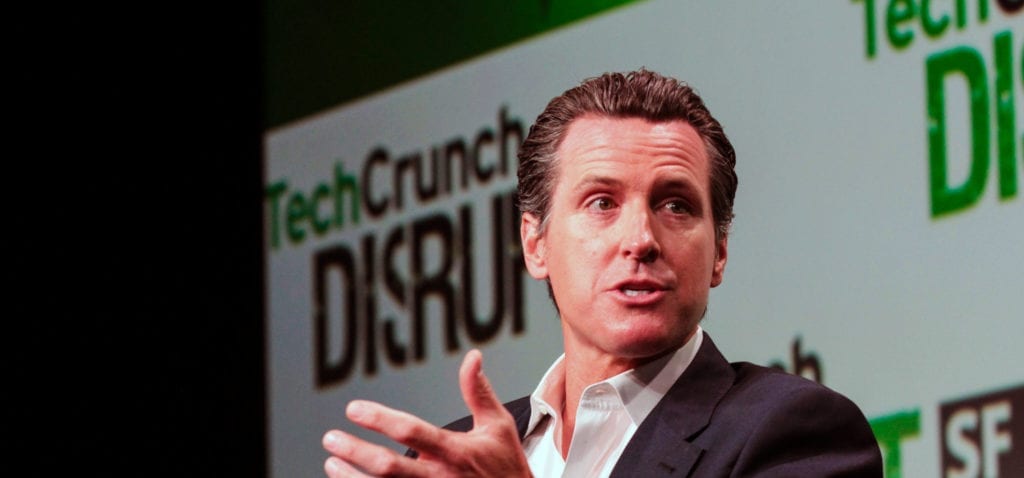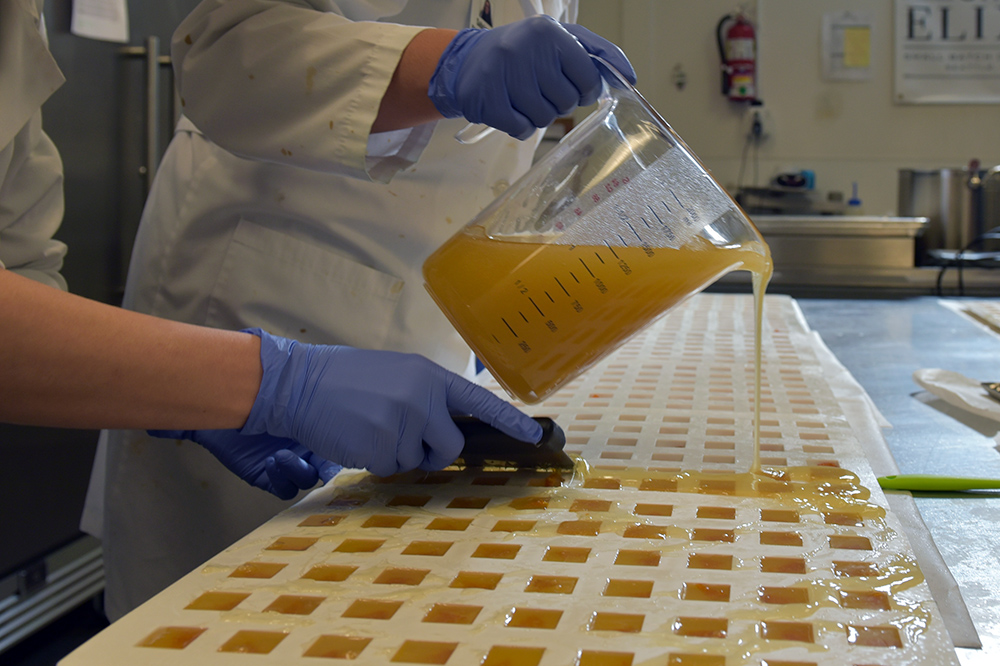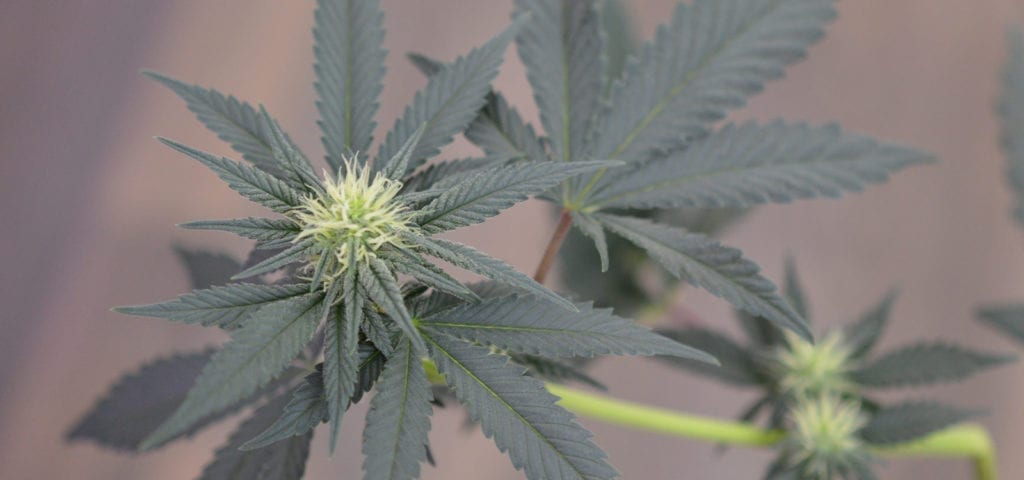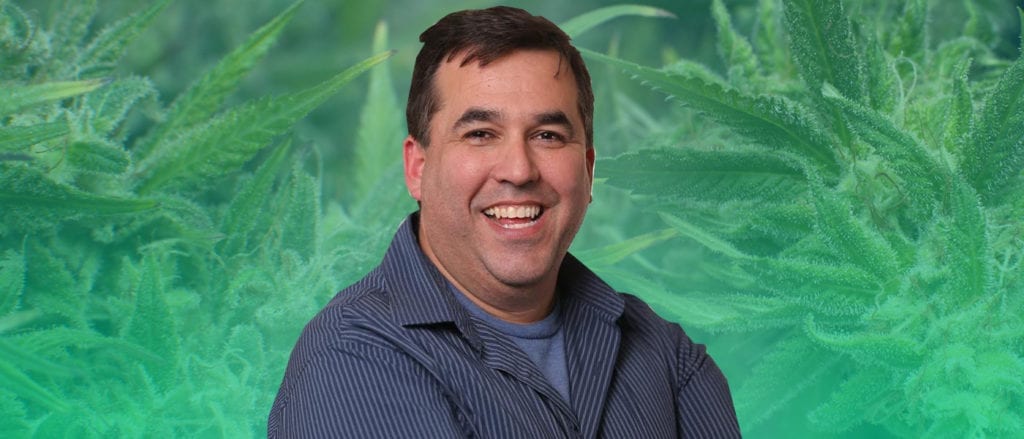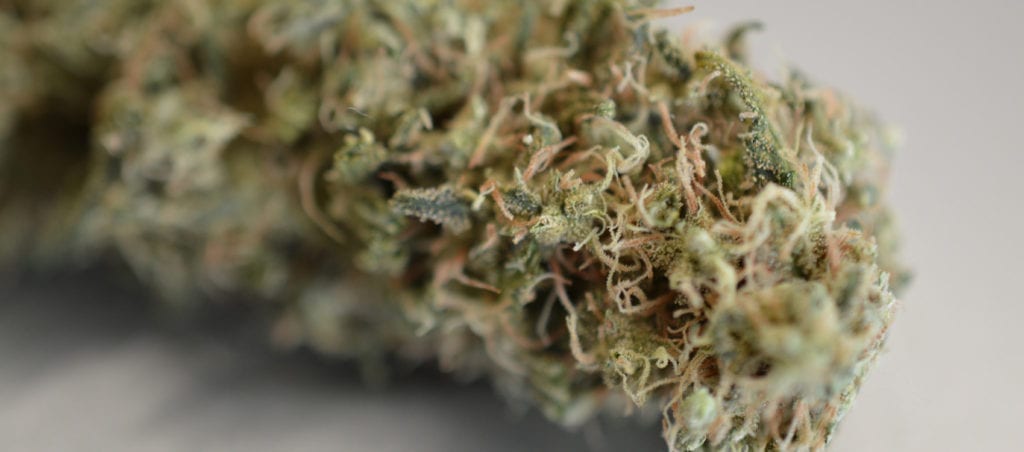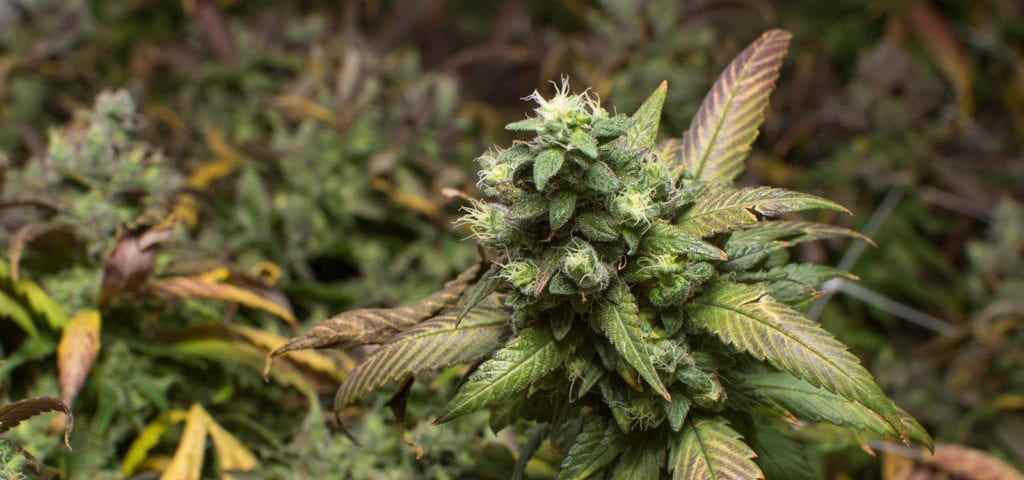Dave Peck is the Chief Marketing Officer for KIND Financial, a business offering seed-to-sale software technology to help cannabis companies stay compliant in the evolving marketplace.
In this episode of the Ganjapreneur.com podcast, TG Branfalt hosts Dave for an interview just two short weeks after he left an executive position with PayPal to join KIND’s pioneering journey in cannabis compliance. In the interview, the two discuss Dave’s early impressions of the cannabis industry, the historical evolution of social media, how cannabis companies should change their marketing strategies based on which platform they are using, the importance of data collection and self-reflection when running an online marketing campaign, and more.
Listen to the interview via the media player below, or keep scrolling down to read a full transcript of this week’s episode.
Listen to the podcast:
Read the transcript:
TG Branfalt: Hey there. I’m your host, TG Branfalt, and you are listening to the Ganjapreneur.com podcast, where we try to bring you actionable information and normalize cannabis through the stories of Ganjapreneurs, activists and industry stakeholders. Today, I’m joined by Dave Peck. He is the chief marketing officer of KIND Financial. How are you doing today, Dave?
Dave Peck: I’m doing good. How are you doing?
TG Branfalt: I’m all right, I’m all right. We were bantering a little bit before we jumped into this, and you’ve only been in the industry how long?
Dave Peck: Two weeks, at this point.
TG Branfalt: Two weeks?
Dave Peck: Maybe three. Yep, I’m new to this industry.
TG Branfalt: Tell me about life before the industry.
Dave Peck: Sure.
TG Branfalt: What did you do before, and how did you end up here?
Dave Peck: I’m one of those early adopter geeks, as I like to say. I’m always the guy to use something first, be it online, or social, or devices, Alexa, things like that. I found my way into digital social media about 10 years ago. We called it new media, we didn’t even know it was social media, and got involved with podcasting, like yourself. One thing led to another, and brands started rushing into social sites like Twitter and Facebook, trying to figure out, how do they use it? I got picked up for some consulting by Coca-Cola, ended up consulting for Wells Fargo, Sergio Rossi, Gucci, more reality stars than you can shake a stick at, because they all want to be famous.
And eventually, a little company called PayPal, about five years ago, made me an offer I could not refuse. I have five children, and my wife said, “They offer health insurance? You’re taking that job.” Joined PayPal back in 2012 to launch their social and digital strategy and campaigns, and then about a few months ago, ready for a change, and I’m now in the cannabis business working for KIND Financial.
TG Branfalt: So, you’re ready for the change. Tell me about how you discovered the position, and why did you decide to enter the space from something pretty mainstream?
Dave Peck: Yeah, I get that question often. Introduced to David, David is the CEO and founder. Got introed, and we had some back and forth for a while, talking about opportunities for KIND Financial. Ended up meeting, more back-and-forth, and talked to my family about it, especially my wife. I’m looking to be inspired, something new. Like I said earlier, I’m one of those, I keep saying it funny, but early adopter geeks. I’m one of those guys, I love being part of a team that’s solving for something, you know? Doing something better than anybody else.
PayPal does what they do better than anybody else, and it was great to be with them at a time when things were exciting, and moving forward. Talking to David, I was just inspired. Realizing the kind of team he’s brought together, and they’re solving for a problem in the cannabis industry around compliance and financial solutions, and to help businesses with government agencies, and just thrive, for lack of a better word, in this time of change. I knew I wanted to be part of it, and it got me excited. I really am excited. I think this is going to be a great ride, and I’m looking forward to it.
TG Branfalt: So, what for some of those things that drew you? What are some of those things that excite you?
Dave Peck: In regards to this industry?
TG Branfalt: Yes, sir.
Dave Peck: What excites me? Building the team. In a team of people that are made up of veterans, and regulators, I find that fascinating. I know that’s weird, but that’s just something exciting.
TG Branfalt: I’m a policy geek. I understand.
Dave Peck: I know. I’m getting to be a policy geek. I’m not quite there yet, but I am a lobbyist, and things like that. You asked me one reason I took it, and about a month prior to my first conversation with KIND Financial, I was talking to a former PayPal colleague who’s a lobbyist. I must have drilled that guy for three hours, Devin. I kid you not, asking questions like that is just fascinating. The timing with that conversation and KIND just really got me interested. What things excite me? Helping the industry grow. Being part of a team that’s, like I said, doing something that others aren’t doing. With KIND, it’s helping customers with compliance, rules, helping them with banking. There is that word, right? Just doing things better than anybody else.
TG Branfalt: Did you, is this something that you looked into when you were looking for a change? Did you say, “Hey, I want to go to the cannabis industry.”
Dave Peck: No, it was not, if I have to be completely honest. The other question I get is, am I a cannabis user? How do I feel about it? I’m neutral. The product does not necessarily have to be cannabis for me, in this example, right? It just happens to be, and I’m fine with that. I’m in California, what can I tell you?
TG Branfalt: So tell me about, what is your job description over there at KIND Financial? The CMO, what do you do?
Dave Peck: Fancy title, right? CMO, people are like, “What the heck’s a CMO?” I am in charge of marketing first and foremost. How are we marketing? How are we targeting our users? How are we getting the word out around what we’re doing here at KIND Financial? In addition, I pick up PR, so public relations in this company falls under there as well. Talking to, being a spokesperson. Talking to one of the best podcasters I know, things like that, who I’ve known for five minutes. Then it’s operations too, day to day. How can we do things better, faster, more efficient?
TG Branfalt: You came from PayPal, as you said. They’re well known, they’re publicly traded. Can you tell me about some of the reactions that you received when you made the jump to this industry?
Dave Peck: Yep. One of the questions I get a lot is, how do people react? Like you said, I’ve had nothing but welcoming and arms wide open. No one has said, “What are you thinking? Are you an idiot?” Or, “I don’t like cannabis,” things like that. The other thing that’s happened is, it happens every day when someone finds out. They all have friends that are in the business. It’s like one of those things that’s taboo, I’m starting to learn, that people don’t necessarily talk about, but then when they know, “Oh, you’re in the same industry? Let me introduce you to a friend.”
I mean, you can see right here I have about four business cards the people have given me that want to talk. It’s amazing. It’s like six degrees of Kevin Bacon, it’s one degree of cannabis. It’s all around me. It’s incredible.
TG Branfalt: Nobody called you a crazy person for entering an industry that is a little under fire right now?
Dave Peck: No, not at all. One of the best messages I have via Facebook messenger was from an ex-colleague named Christina who wrote, I told her I was getting into the cannabis industry. She wrote back, “You’re Dave Peck. Of course, you are.” It’s not shocked at all. That’s the kind of thing I do. I go for that soon-to-be new and up and coming thing. It’s just in my blood.
TG Branfalt: What have been some of the learning curves that you’ve had to endure in your short tenure thus far?
Dave Peck: What are the learning curves? Rules for cannabis are a little different when it comes to digital and social, so that’s the first one. Running ads on Facebook, you can’t use images, necessarily, or anything that encourages marijuana use, but yet, as a business, you can be there. How’s that for a yin and a yang, right? It’s okay to advertise on Facebook, or Instagram, or things like that, but you can’t use images of your product. I find that a little interesting, and I’m still trying to wrap my head around that.
The other one is compliance. I understand that KIND Financial is in the compliance business, I’m in the compliance business. Before I came on board, they walked me through the product, and these questions are blowing my mind. What did you do? I hope I use the right terminology, by the way. Nobody judge me here. “What do you do when you trim the cannabis plant, what did you do with the trimmings? Who took it? Where did it go?” I’m like, “What?” I go, “Isn’t that a lot of questions?” The team’s like, “Oh no, they have to have this information. If they get audited, they’ve got to have this logged.”
That’s why we built the product. It’s mind blowing to me, sorry. What time was it disposed of? Who bought the product? How did they pick it up? I mean I can go on, and on, and on. That is a huge learning curve. I thought it was a joke.
TG Branfalt: It’s no joke. It’s very serious business.
Dave Peck: Yeah, I’m getting that.
TG Branfalt: You had mentioned that on Facebook and Twitter, you can’t market a certain way. You can’t have these images. What changes are you going to have to make with your own marketing strategies to adapt to these rules?
Dave Peck: Historically, one of my main strategies has been images. Image first. People are looking at ads, and going on social networks on their phone first, right? It’s a mobile world we live in, and so it’s harder for people to read the content, the copy, versus the images. I have to adjust what the images I’m using, how I think about it. It’s really going to be something I’m going to have to dive into. Grabbing people’s attention on their mobile device, that’s a big one for me. Then tightening up who we target. Well, not who we target, but in my past, my demographics have been different, right?
I can go younger, I can go older, and in this industry, I am learning that it’s that 18 to 34, right in there, I believe. I know someone’s going to email me and go, “Hey, I’m 72.” You’re right. It’s for anybody, but I have to train myself a little bit different there.
TG Branfalt: I want to talk to you a bit more about the marketing strategies, but before we do that, I want to take a short break. This is the Ganjapreneur.com podcast. I’m TG Branfalt.
This episode of the Ganjapreneur.com podcast is made possible by Name.com, a global provider of domain name, web hosting and email services. Every successful cannabis business needs an online presence, and every successful online presence begins with a domain. From your website to your email address, a good domain is easy for your customers to remember. It looks nice on a business card or billboard, and it reflects the true identity of the project it represents. It’s important to reserve your domain early on when you are starting your business, as you may find that the .com address for your preferred brand or concept has already been taken.
If somebody has already purchased the ideal .com for your business, they might be willing to sell it, but if they aren’t, you may have to get creative with one of the new alternate domain extensions, such as .co, .club, .shop or even .farm. Reserve your domain name today at Name.com/ganjapreneur. If you are a domain name investor or venture capital firm interested in acquiring or advertising premium cannabis domains, go to the Ganjapreneur domain market to browse a wide variety of names, including strains.com, cannabismedia.com, mj.com and countless others.
Discover branding opportunities for your next startup, and learn about listing your premium domain names for sale at Ganjapreneur.com/domains, sponsored by Name.com.
TG Branfalt: Welcome back to the Ganjapreneur.com podcast. I’m your host, TG Branfalt, here with Dave Peck, the CMO of KIND Financial. Before the break, we were talking a bit about how you’re going to have to adapt your own marketing style to fit the space. As we know, you’re brand-new to the space so I want to talk to you a bit more broadly about marketing and social marketing. What are some common mistakes that you’ve seen from new companies throughout your career?
Dave Peck: A lot of them will launch social channels or a digital campaign, and they’re doing what I call shouting, right? It’s, “Look at me, here I am. Come check me out.” Then they wonder why no one is liking their content, or engaging with their content. I define engagement as a like, a share, a comment. Call it an action, right? Those companies will throw a lot of money into it and wonder, “Why is nobody talking back to me, or sharing my content?” It’s because you’re just shouting at them. You’re like, “Hey, we got a sale!”
I pick on Jamba Juice, but they’re like, “Buy three Jamba Juice, get one half off, only in Milwaukee on a Wednesday.” And they’re like, “Why is nobody going to Milwaukee on a Wednesday?” Well, first of all you’re using Twitter. Twitter, in my head, is an amplification tool that’s global. It doesn’t mean that people in Milwaukee are going to see your post, right? Anybody can see that. If you have that poor Jamba Juice example, that’s a Facebook play, right? You can use Facebook to target people, you know where they live. For $20 you can get a targeted ad, and get those people in Milwaukee on a Wednesday.
They don’t use the channels. They don’t think it through. They think all social channels are the same, for lack of a better term. That’s one of the biggest mistakes I see. Others? Influencer marketing. A lot of companies like to hire influencers, and then they’ll have a YouTuber make a video. Great, this is the best video. Then they put it on their channel, their being not the influencer. Well, time out. You just paid this influencer to create a video. You want to have them share it on their channel, because you want to target their audience. You want to get outside the bubble, for lack of a better term. That’s another one of my favorites.
Then lastly is measurement. My team has already learned this at KIND. How do you measure success? I’m all about metrics, right? If you come back and you hire a Snapchatter, and you come back with one million opens, you go, “Look, I spent $100,000, I know I got a million opens.” I’d be like, “So what? What’s the value of an open? Did anybody click on the link, did anybody buy the product? What happened?” Those kinds of things. That’s the other one, because the people get caught up in impressions, which is how many people saw the video. What’s the value of an impression? I have no idea. It doesn’t help me. I’m mean like that, by the way. Can you tell?
TG Branfalt: What might you tell a new company, who’s already made some of these mistakes, how could they rectify them? What advice would you have for them?
Dave Peck: Measure everything. Which sounds like a lot of work, but it’s not. Start backwards. You know, people say, when I worked with companies in the beginning, I’ll say, what does success look like for you? “We want everybody to share our social posts.” It’s like a shrink, right? You’re talking to your psychologist. As we work through it, no, you really don’t. You really want people to go to your landing page and buy your product, so start there. How can we get people to come to our landing page and buy our product? Okay, how do we measure that? Maybe it’s a Bitly, which is one of those links, if you’re not familiar with it. You can custom link, it’s free, by the way. Everything is free.
You go there, and it will tell you how many people clicked on your link, what time of day, where they came from. Take that data, and go, “Okay, I know people are clicking at 11, versus nine, and they really do it on Thursdays.” Okay. You know what I should do? I should post my content at 11 on Thursdays, and then watch them, and then see if the number of clicks go up, great. More people are coming to my landing page. That kind of data, I can go on for hours, I don’t want to bore everybody, but working in a new way, that way. You know what you’re doing wrong, make more educated decisions. A lot of it is all free.
TG Branfalt: When you came into this space and you started working with KIND Financial, what were their goals for you, as this social marketer?
Dave Peck: The goal for me is to increase awareness around KIND Financial’s products, get more people talking about what we’re doing, and make awareness of what problems KIND Financial solves, along the lines of education, compliance, banking, with our link to banking products. Yeah, and awareness, I would say is the high-level answer and measurement.
TG Branfalt: Moving forward to some of the strategies that you’re going to employ for KIND, are you going to take any sort of different approach because you’re in the cannabis space than you would in the outside space? I know that’s similar to previous questions, but what I mean is specifically, KIND doesn’t touch the plant, right? So you can obviously have a little more leeway than you do, as opposed to a company that would touch the plant. What sort of things are you planning on rolling out, or utilizing for KIND?
Dave Peck: I think it kind of goes back to my measurement point about, I want to be more educated in the actions we take. Because we’re in the cannabis industry, finding our audience could be a little bit harder than other, versus people that drink soda pop, or like to shop. I think we’ll be heavier on Facebook, if that makes sense, because with Facebook you can get a lot of data, and a lot of great analytics. I always tell people that for $20, my kid could get you a ton of coverage on Facebook, and he’s 11. He knows it better, it’s scary, than most adults I know.
My credit card shows these bills and I’m like, “What are you doing?” I think there’s a great data, back to my point again about the audience, and who they are, and where they’re located. I think we can make KIND, using my experience, to make really educated marketing campaigns, how about that? I guess that’s what I’m trying to say. I’m trying not to repeat myself from earlier, but that’s really what I think I bring to the table, and where we’ll be.
TG Branfalt: I want to talk to you a bit more again, about some were broader issues with the marketing and the cannabis space, but we’ll take our last break. This is the Ganjapreneur.com podcast with TG Branfalt.
At Ganjapreneur, we have heard from dozens of cannabis business owners who have encountered the issue of canna-bias, which is when a mainstream business, whether a landlord, bank, or some other provider of vital business services refuses to do business with them simply because of their association with cannabis. We have even heard stories of businesses being unable to provide health and life insurance for their employees, because the insurance providers were too afraid to work with them. We believe that this fear is totally unreasonable, and that cannabis business owners deserve access to the same services and resources that other businesses are afforded.
That they should be able to hire consultation to help them follow the letter of the law in their business endeavors, and that they should be able to provide employee benefits without needing to compromise on the quality of coverage they can offer. This is why we created the Ganjapreneur.com business service directory, a resource for cannabis professionals to find and connect with service providers who are cannabis-friendly, and who are actively seeking cannabis industry clients. If you are considering hiring a business consultant, lawyer, accountant, web designer, or any other ancillary service for your business, go to Ganjapreneur.com/businesses to browse hundreds of agencies, firms, and organizations who support cannabis legalization, and who want to help you grow your business.
With so many options to choose from in each service category, you will be able to browse company profiles and do research on multiple companies in advance so you can find a provider who is the best fit for your particular need. Our business service directory is intended to be a useful and well-maintained resource, which is why we individually vet each listing that is submitted. If you are a business service provider who wants to work with cannabis clients, you may be a good fit for our service directory. Go to Ganjapreneur.com/businesses to create your profile and start connecting with cannabis entrepreneurs today.
TG Branfalt: Welcome back to the Ganjapreneur.com podcast. I’m your host, TG Branfalt, here with Dave Peck, chief marketing officer of KIND Financial. I’m sure you guys over there collect a ton of data with your software. Can you tell me about how you plan on using portions of that data for marketing purposes?
Dave Peck: That’s a great question. That’s one of the first things I looked into when I started KIND. I reached out to one of the guys in the marketing team and had them look into, what is the data we can pull? What is it that we might want to pull later? Keeping in mind that we want to stay within our user agreement about using people, the data as well as within the legal rights. I said, “Make sure you talk to the lawyers first, and check the user agreement. What can we pull?” Or, what would we like to pull in the future? And not share anyone’s private data, obviously.
I’m interested, what are the biggest sales days for cannabis products? What are the cannabis products being sold most often? What’s the average purchase price? Where are they located? I would love to get my hands on all that data, within the rules and keeping our users safe, of course. That is something we’re absolutely looking into, but we’re not taking any action at this time. Just looking into it. I’m all about the rules.
TG Branfalt: And you would use that stuff, like you said, to target marketing. Maybe it would go out on a Tuesday instead of a Wednesday.
Dave Peck: Yeah, and also to give you a little of what it’s like behind the kimono, you see it happen all the time. Today, someone put out an article about the number one edible, I can’t remember the name, and it was gummy bears. That stuff gets media’s attention, gets PR, basically, so you can help tell your story. You can say, “Hey, we’ve got this great stat, and by the way, here we are, we’re rolling out a new product.” It kind of becomes part of a campaign, and companies that are sitting on that kind of data, I encourage them to look into it and see, again within the rules. I know I’m repeating myself, like the third time talking to one of my kids, but you want to stay legal. You don’t want to do anything that risks your client’s customer data or anything like that, so be really careful with that kind of stuff.
TG Branfalt: Again, coming from an outside industry, and you said that you’re sort of neutral on cannabis. What has this experience so far been like for you? You said that you were accepted with open arms, but what’s the culture been like, going from a PayPal to a KIND? Has there been sort of culture shock for you?
Dave Peck: Well, I look at it this way. Going from a big company to a startup, a new company, I should say, that’s different, but I knew that’s where I came from, so I’m actually happy to be back. Less cooks in the kitchen, able to get things done faster. I’ll answer the other part of your question this way. I’m blown away with how mature this industry is. I use the word professional. I just went to my first conference, and I mean there’s people in suits. Some guys are wearing vests. At the conference I went to, the product was not there at all. There were no plants, but there is people selling lights, and packaging, and vapors, and water with cannabis THC in it.
How well dressed they are, it is not what I expected from the TV shows and things like that. It was really, I’m smiling when I’m saying it to you. It was really fun, too, actually.
TG Branfalt: Which event did you attend?
Dave Peck: It was in DC last week. It was …
TG Branfalt: Ah, we crossed paths like ships in the night. I was in DC, and I was actually notified that that was going on, but I was doing some business down there. I heard that it was really an incredible event.
Dave Peck: It was amazing. It was just not what I expected at all.
TG Branfalt: Would you have any interest in working with, in the future, obviously, working with companies that touch the plant, or are
you more comfortable in an ancillary industry?
Dave Peck: I can’t speak for our CEO, but I would think that —
TG Branfalt: I’m talking about you, personally.
Dave Peck: Me, personally? I have no problem touching a plant, not at all. I’m just raised, I keep saying California, but I do think it has something to do with it. I’m like, “Whatever.” It’s almost a nonevent for me, personally. Don’t care. It’s your own business. I don’t think there’s anything wrong with it. I have no problem with it, you know? It’s just uneventful to me. I laugh at how much attention this gets.
TG Branfalt: Well, I mean speaking of the attention, when it was announced, we covered it, and actually that’s the most times that I’ve been retweeted in my entire life. The minute that you retweeted it, I was like, “Wait a minute, what’s going on here?” My followers were filling up. I was like, “Wait a minute, that’s right. It’s the Dave Peck story. That dude has followers.”
Dave Peck: Oh, you mean me joining a cannabis company, yes.
TG Branfalt: Were you surprised at the response?
Dave Peck: Yeah. Prior to, you nailed this one really well. Prior to the story going out, our CEO, David’s like, “Hey, you don’t understand much coverage we’re going to get.” Give me a break. He’s like, “No, this is a big deal.” I go, “Come on.” He goes, “You want to put some money down on it?” I’m like, “I’ll make a friendly wager, sure.” I lost. Please, I’m not bragging. I’m just saying, Forbes picked it up, Business Wire. It just goes on and on. Some pro-cannabis celebrities retweeted it. I’m like, “What the heck?” I must have had blinders on. I just did not get it. To me it was like, “Really?” And here I am talking to you almost two weeks later, still about it.
TG Branfalt: So you didn’t expect it to blow up the way it did.
Dave Peck: Not at all.
TG Branfalt: In your opinion, why do you think that the cannabis media, and even the mainstream media was like, “All right, we need to talk about this.” From your opinion?
Dave Peck: If I could be honest, I think it, not validates, but I’m trying to use the right word. Not professionalism, but shows that this is a real industry, maybe. These Silicon Valley types are moving to the cannabis industry. It validates it, I don’t know. Legitimizes it, maybe that’s the word I’m looking for. There’s some money to be made here. There is this thing that’s happening, people want cannabis, to be able to access it, and I think this kind of shows it, because along with some of the articles written about me, there are also articles about venture capitalists investing and pivoting their models, even in Silicon Valley, to invest in the cannabis industry. It’s crazy.
That’s the other thing that’s happened. Quite a few VCs have reached out to me to talk about, not necessarily, do I know people they can invest in? I’m like, “I’ve only been at this a week, guys.” This was a week. I haven’t even met anybody yet. “Well, as you meet people, if you think there are businesses you can invest in, please let us know.” I’m like, “Oh my God.” It’s crazy.
TG Branfalt: As someone who has an entrepreneurial background, does it surprise you at all that VC firms are getting in on the ground floor of this?
Dave Peck: No, not at all. This is what they do, right? They want to get in on that as early as possible, so they get a bigger return at the end. Back to, you asked me about my past. Getting in early is my thing, and that’s exactly what VCs do. Here’s another industry, you know? Enough self-driving cars, let’s get into something more practical, that we can get a return back faster.
TG Branfalt: So, the last question I really want to ask you is, what advice as an entrepreneur do you have for not only individuals considering getting into this space, but also people working in mainstream, with mainstream companies who are considering getting into this space?
Dave Peck: In my opinion, the cannabis industry is still pretty young. It’s growing really fast. It reminds me of the Internet boom in the ’90s, or the computers in the ’80s. With all that being said, you’re going to make mistakes as you race to find solutions quickly, and that’s okay. Everyone’s going to make mistakes, and things are going to move fast, but you need to be prepared. Being the first may not equal being the most successful. If you don’t take the time to do it right, you might not do it well. Take the time to do it right, I should say, and do it well. First doesn’t always been successful in this industry, or any industry. If I compare this to Silicon Valley, that’s my two cents. If that makes sense, I kind of rattled.
TG Branfalt: No, that’s great, man. I really appreciate you taking the time to come on the show. Congratulations on the new role. Welcome to the strange, strange world of the cannabis industry.
Dave Peck: I am excited.
TG Branfalt: I really appreciate you taking the time out to, two weeks in, you’ve got a lot of guts my friend. Thank you.
Dave Peck: No problem. You were gentle, so it was great.
TG Branfalt: You can find more episodes of the Ganjapreneur.com podcast on the podcast section Ganjapreneur.com and on the Apple iTunes store. On the Ganjapreneur.com website you’ll find the latest cannabis news and cannabis jobs, updated daily, along with transcripts of this podcast. You can also download the Ganjapreneur.com app in iTunes and Google Play. This episode was engineered by Jeremy Sebastiano. I have been your host, TG Branfelt.
